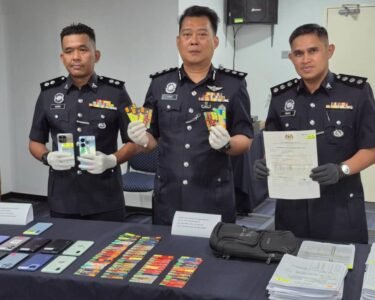The warning from national fraud and cybercrime reporting service, Action Fraud, comes as the Glastonbury Festival ticket resale takes place and ahead of top gigs such as Taylor Swift’s sell-out Era’s tour.
Action Fraud revealed last year more than 8,700 people reported ticket fraud, with a total of £6.7 million lost. This works out to an average loss of £772 per victim.
Pauline Smith, head of Action Fraud, said: “We all want to enjoy ticketed events this summer, but that doesn’t stop fraudsters from taking the fun out things we look forward to doing. Too many people are losing out to fraudulent activity or genuine looking phishing messages.
“Make sure you don’t get ticked off – recognise the signs of ticket fraud before getting caught out. Remember to be wary of unsolicited messages offering deals too good to be true.”
Of the reports made to Action Fraud last year, 34% of reports (2,993) mentioned concert tickets, 29% of reports (2,523) mentioned travel and 18% of reports (1,561) mentioned sporting events.
Concert and festival ticket fraud: What to watch out for
Check your seller is a member of the Society of Ticket Agents and Retailers (STAR). Suppliers with this endorsement will have signed up to a strict code of conduct and will be authorised to sell tickets. It means customers will have access to an approved Alternative Dispute Resolution service if they ever had any problems.
Action Fraud offers the following advice to help you weed out any fraudulent sellers.
Only buy tickets from a reputable source
Only buy tickets from the venue’s box office, the promoter, an official agent or a well-known and reputable ticket exchange site.
Avoid paying for tickets by bank transfer
This is particularly important if buying from someone unknown. Credit card or payment services such as PayPal give you a better chance of recovering the money if you become a victim of fraud.
Use a strong password
The password you use for your email account, as well as any other accounts you use to purchase tickets, should be different from all your other passwords. Use three random words to create a strong and memorable password, and enable 2-step verification (2SV).
Beware of unsolicited messages
Be wary of unsolicited emails, texts or adverts offering unbelievably good deals on tickets.
Watch out for phishing emails
Fraudsters often create fake ticket retail companies. Victims are lured in using social media or phishing emails with offers of the chance to buy tickets to a popular event, but instead give away their personal information or money, with no tickets received in return.
Phishing messages often look real, but instead will either steal your information or divert to malicious websites which can infect your computer with malware.
If you have concerns…
If you feel at all suspicious, report the email to the Suspicious Email Reporting Service (SERS) at report@phishing.gov.uk. For more advice on how to stay secure online, please visit cyberaware.gov.uk.
Find out how to protect yourself from fraud: https://stopthinkfraud.campaign.gov.uk
If you live in England, Wales and Northern Ireland and have been a victim of fraud or cybercrime, report it at www.actionfraud.police.uk or by calling 0300 123 2040. In Scotland, victims of fraud and cybercrime should report to Police Scotland on 101.




